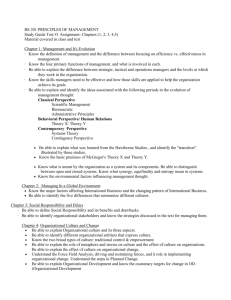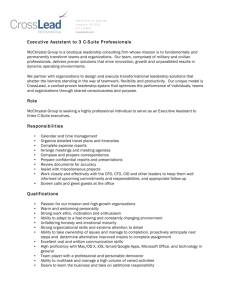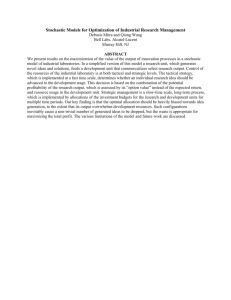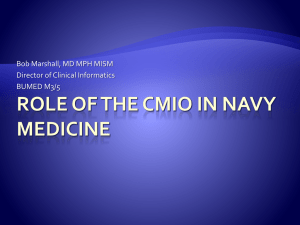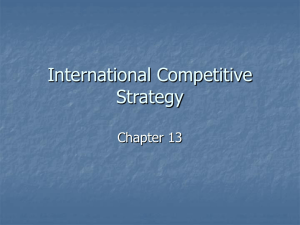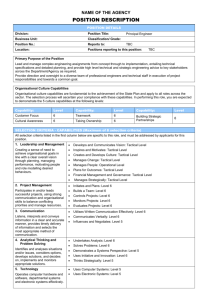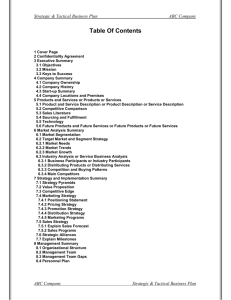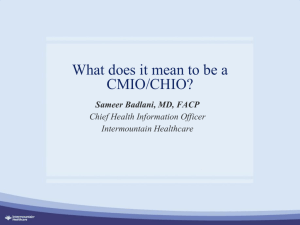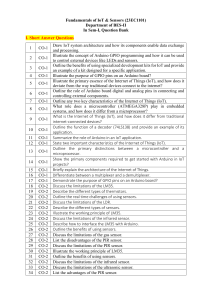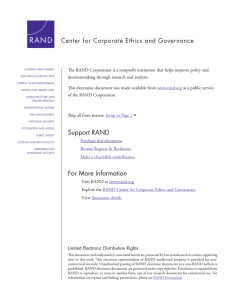CMIO Leadership
advertisement
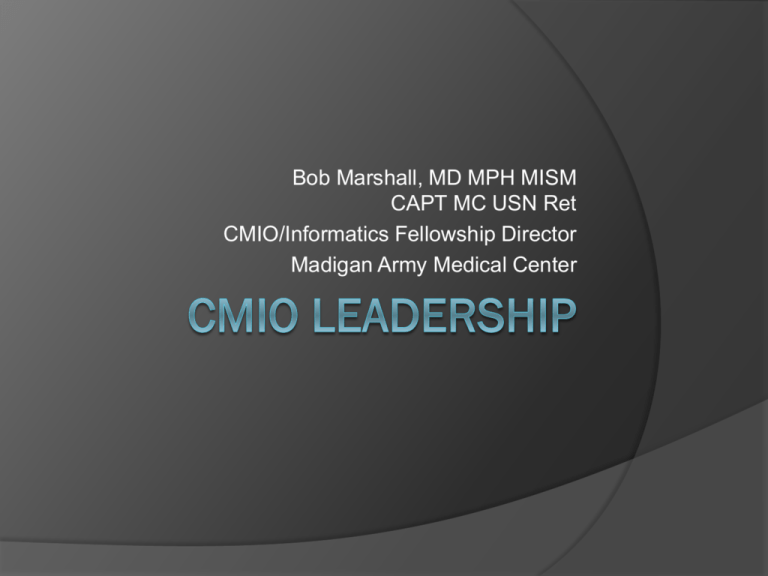
Bob Marshall, MD MPH MISM CAPT MC USN Ret CMIO/Informatics Fellowship Director Madigan Army Medical Center Learning Objectives Practical tips on leading other physicians and working with C-Suite Executives Understand the differences in management and leadership Learn about the skills necessary to thrive in a leadership role Learn about strategic/tactical versus tactical only thinking Leading Clinical End Users It is not just about physicians Need allies and clinical champions Be a clinician first – lead by example Never lose patience Focus on the patients and clinical outcomes, not productivity You are there to help them use the tools better; never be the enforcer Working with the C-Suite Ensure your boss understands your job Get clear expectations from the C-Suite Be honest, but never say “no” Get the C-Suite to provide priorities Communicate often, but not excessively Identify potential/real problems early Reassess goals and objectives yearly Focus on patient care and quality Leadership Healthcare leadership more complex CMIO’s cross over leadership groups Several responsibilities as a leader Serve as cross-cutting matrix resource Must partner with others Must provide vision and strategy while executing tactically Must provide innovation, while focusing on safety, security, outcomes, income Management Normally focuses on work and tasks Helps organization produce products and services as promised Most CMIO’s have management experience Good management is very important to quality, safety and consistency Management ≠ Leadership What is the difference? Stability Decision-making Plans around constraints Short-term vision Reactive Minimizes risk Keeps status quo Values results Change Facilitates decisions Sets/leads direction Long-term vision Proactive Takes risk Challenges status quo Values achievement Management focus Leadership focus Skills for Leadership Build relationships, understand the culture Always follow, “Do unto others….” Remember that respect is earned, but give it freely Apply the style for the situation Be sincere, honest and patient focused Try to never have a “bad day” Situational Leadership 9 SITUATIONAL LEADERSHIP IS NOT SOMETHING YOU DO TO PEOPLE BUT SOMETHING YOU DO WITH PEOPLE 10 Strategic/Tactical Thinking Strategic thinking critical for long term organizational success Strategic thinking is for ALL leaders As a CMIO, you must think BOTH tactically and strategically Thinking Planning and Execution Should be evidence-based Avoid “magical” thinking Tactical-only Thinking Focused on the short term Task-oriented…how do I get the job done? Rarely thinks beyond the fiscal year Often deals with “mission criticals” Exclusive tactical-thinking will not consider the long term effects of decisions CMIO Thinking Should incorporate both tactical and strategic thinking ROI hard to estimate at times, but need to try with strategic thinking Need to consider decisions made now with effects 3-5 years from now All Health IT decisions should be based on strategic thinking Data Focus vs Clinical Focus Do not become enamored of and blinded by the data Data is only as important as its ability to improve patient care and outcomes Give people the type and amount of data to achieve their goals Focus both in internal, clinical/fiscal goals and external reporting requirements Making Decisions Many factors and influences involved Remember…tactical/strategic thinking Use the available evidence Estimate short-/long-term ROI Remember the clinical goals…improved clinical outcomes usually means improved fiscal outcomes Collaboration and consultation helpful Closing Thoughts You are now a leader, but you still have to manage projects/tasks Think tactically and strategically…at the same time Clinical focus, data & evidence driven Know the culture; collaborate Earn respect by respecting others Common sense is not that common Questions
